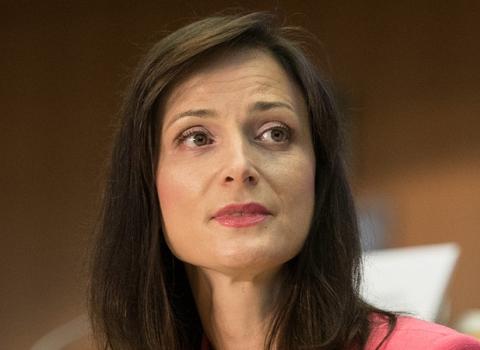The UK government will provide £22.5 million to fast-track Imperial’s development of a coronavirus vaccine.
The work, led by Professor Robin Shattock in the Department of Infectious Disease, was one of two coronavirus vaccines to receive new financial support, with Oxford University receiving an additional £20 million.
The Health Secretary Matt Hancock MP announced the funding during the government’s daily coronavirus briefing. He said “In the long run, the best way to defeat coronavirus is through a vaccine”.
Mr Hancock said: “The UK is at the forefront of the global effort…and for all of the efforts around the world, two of the leading vaccine developments are taking place here at home, at Oxford and Imperial.”
Professor Shattock’s team has been testing an RNA vaccine candidate in animals since early February.
When injected, the self-amplifying RNA vaccine will deliver genetic instructions to muscle cells to make the ‘spike’ protein on the surface of the coronavirus. This should provoke an immune response and create immunity to COVID-19.
Early findings have shown that animals given the vaccine are able to produce neutralizing antibodies against the novel coronavirus SARS-CoV-2. The team is currently developing the vaccine further and will test whether it can produce the same response in humans, which could ultimately protect against COVID-19.
The Health Secretary announced that the latest funding will “support Phase II clinical trials which are going to assess a sample of several thousand, and for them to begin the work subsequently on a very large phase III trial.”
Philanthropists step-up
The Imperial team are seeking further philanthropic support to conduct parallel international trials to accelerate progress and ensure the vaccine is widely available globally, including in low and middle-income countries.
In recent months hundreds of donors have supported Imperial’s efforts to combat coronavirus, including via the College’s COVID-19 Response Fund.
Professor Robin Shattock said: “This investment will help us accelerate our clinical programme moving from starting human safety trials in June through to testing whether the vaccine can prevent infection in the wider community. We are working as fast as we can to determine the vaccine’s efficacy and to get to a position where millions or billions of the vaccine can be manufactured rapidly.
“We are tremendously grateful to the UK government and the British people for their investment in this vital work. We are also thankful for the philanthropic support to date that has helped us navigate funding blockages and which we hope will allow us to make this vaccine available worldwide, including to people in low- and middle-income countries.”
Professor Alice Gast, President of Imperial College London, said: “The success of Robin Shattock and his Imperial team in designing a self-amplifying RNA vaccine from a piece of genetic code and moving to human trials within six months is incredible. The government’s investment is very welcome and appropriate. This work offers hope for the containment of the COVID-19 pandemic, and is a promising way forward to curtail future emerging disease threats. We are grateful for the ability to combine philanthropic and government support to scale up and accelerate this vital work.”
The NIHR Imperial Clinical Research Facility will soon begin screening participants for the trial of Professor Shattock’s vaccine and aim to begin clinical trials in June.
Members of the public can register their interest by signing up via the NIHR Imperial CRF Healthy Volunteers database.
View embedded Infogram content
This article was first published on 22 April by Imperial College London.




 A unique international forum for public research organisations and companies to connect their external engagement with strategic interests around their R&D system.
A unique international forum for public research organisations and companies to connect their external engagement with strategic interests around their R&D system.